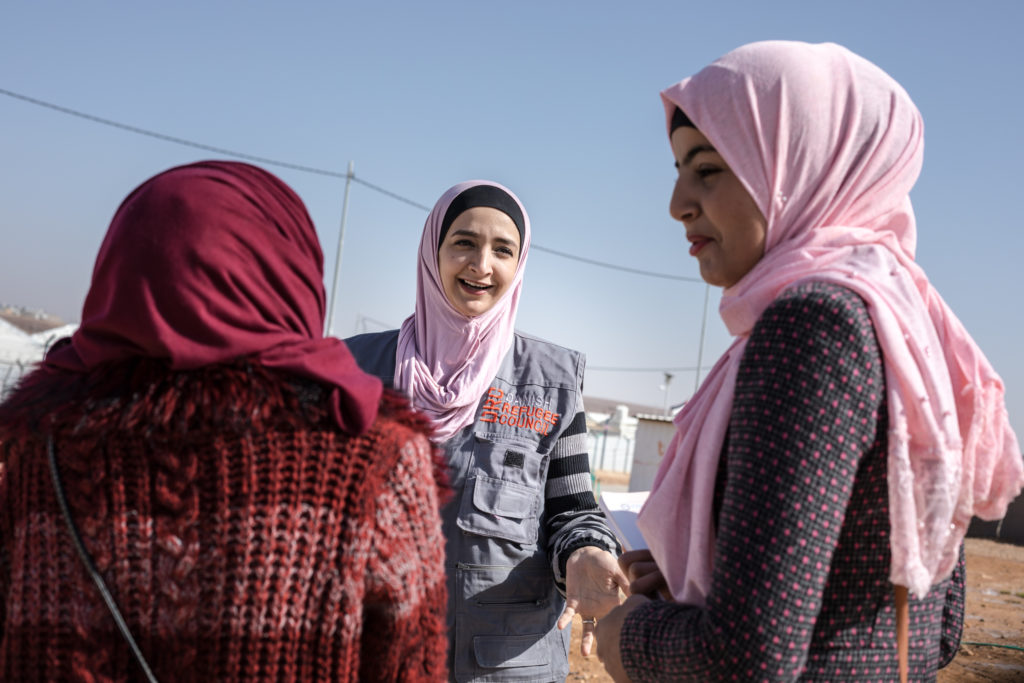Closing a persistent accountability gap – Danish Refugee Council launches new Community Feedback Mechanism Guidance
Of the Nine Commitments of the Core Humanitarian Standard on Quality and Accountability (CHS), Commitment 5 on welcoming and addressing complaints consistently scores the lowest. This is unacceptable. We at the Danish Refugee Council (DRC), together with many other organisations, are determined to do better at welcoming and addressing complaints and feedback from those we serve. Like others in the aid system, we have long faced challenges to effectively design and maintain Community Feedback Mechanisms (CFMs).
For the last four years, CHS certification audits have shown that we have a weakness in our feedback and complaints handling systems, or a ‘non-conformity’ in the language of the independent CHS auditors at the Humanitarian Quality Assurance Initiative.
At DRC, we knew this had to change. Following on from an internal review triggered by seeing our verification scores against the CHS and numerous requests from global colleagues, DRC created a global Community Feedback Mechanism Guidance and Toolkit. It is a significant addition to our ability to be accountable to crisis-affected people.
Despite the plethora of guidelines that currently exist, for DRC, this new document offers a much-needed practical resource, established in response to requests of many field practitioners for clearer guidance and tools to strengthen all aspects of implementing CFMs.
Crucially, for DRC, this guidance marks significant progress in our CHS verification journey to improve our work and deliver our CHS Commitments to those we serve.

DRC staff at Azraq refugee camp, January 2019. Credit: Martin Thaulow.
The new guidance was developed through a truly collaborative process. It is the result of collaboration with many people inside and external to DRC. The starting point was to capture and draw on years of experience from many staff working across our international operations. The framework was then shaped through a practical placement with the DRC Myanmar country office to ensure that the guidance was grounded and tested in local realities. Extensive experience and good practice from outside DRC also fed into the final manual and toolkit.
First and foremost, our new resource is a manual that DRC staff, our partners and anyone wanting to listen and learn more, can dip into for advice and guidance. The guidance and toolkit can be used to set up a community feedback mechanism from scratch but you can also just take what you need, when you need it, without having to read it from front to back. We hope that it reaches far and wide to help anyone facing challenges to make feedback and complaints handling systems more systematic, responsive and inclusive. Please do use and share the global Community Feedback Mechanism Manual.
Those working on increasing accountability to people affected by crisis external to DRC are also welcome to access the corresponding toolkit, just email us at mel@drc.ngo.
We are excited to report that we see our feedback and complaint mechanisms steadily improving, as shown through our annual CHS certification audit scores. We hope to soon see the impact of these improvements in the volume and types of feedback we receive from the people we work with and for.
We know there is still a long way to go to improve how people affected by crisis participate in and influence aid decisions affecting them. While the ability to have a say is only the first step for people in such participation, we are hopeful that our contribution will play a part in giving those we serve a louder voice and greater power in their lives.
At CHS Alliance we commend the efforts of our member to create and share vital resources on how they can better meet the CHS. CHS Alliance will shortly release detailed guidance on strengthening complaints mechanisms for all organisations that need to improve on this essential part of accountability to affected people.
